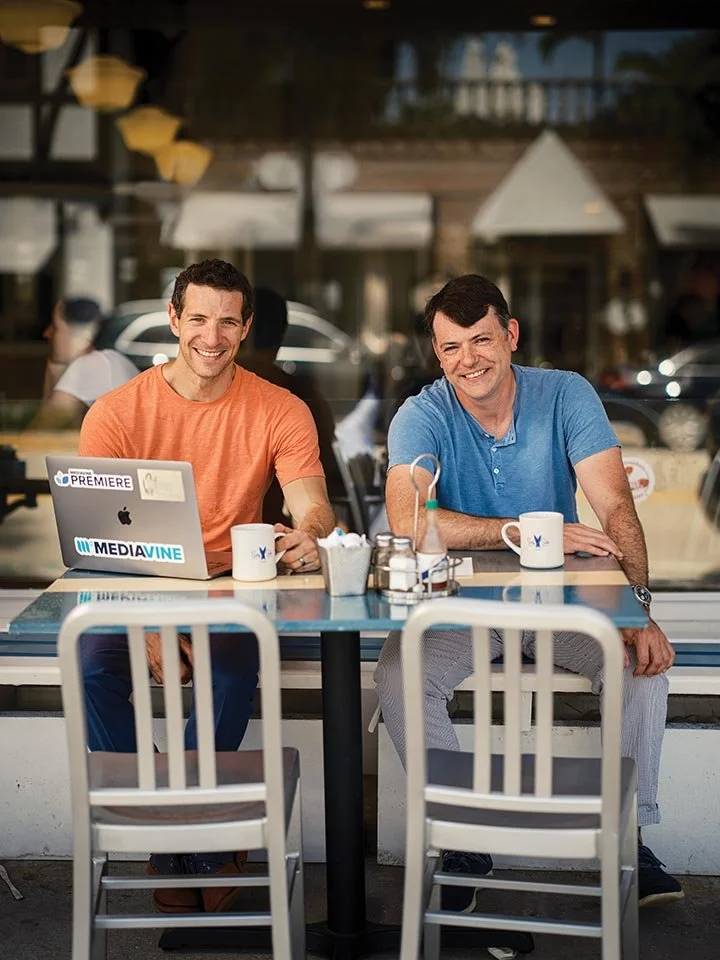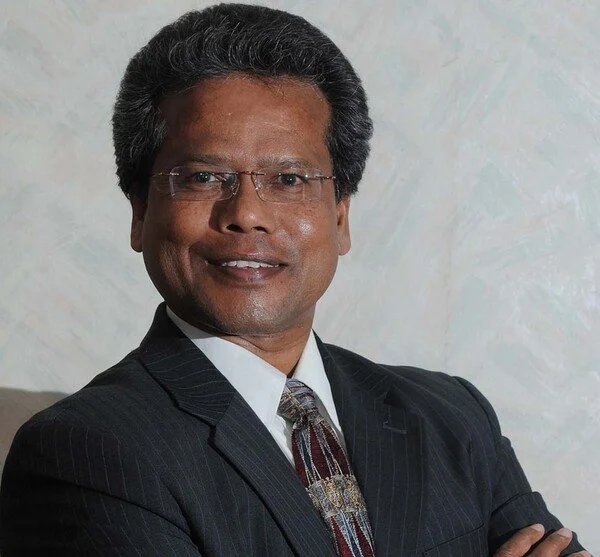Mediavine co-founders credit collaboration and transparency for company’s rise to internet giant.
When Matt Richenthal ’02 resigned from his role as a writer for a Boston start-up to launch his own content company called iScribe — “a terrible, awful name” — in 2004, he had no idea the business would one day grow into Mediavine, one of “The 20 Internet Giants That Rule the Web” as declared by Visual Capitalist in January. He only knew he wanted Steve Marsi ’01 along for the ride.
“I couldn’t imagine a better business partner than Steve in terms of his personality, his work ethic,” says Richenthal, who cites a 368-mile overnight road trip to fetch a bacon, egg, and cheese sandwich from a 24-hour deli as the experience that cemented their friendship at Colgate. “We had no grand visions. We didn’t set out to create the most dominant digital ad management company in the world.”
With nearly 150 employees around the country, Mediavine provides technical support and advertising solutions that allow independent publishers to earn passive income while they focus on long-form content creation. Mediavine works with a range of publishers covering food, parenting, crafting, travel, home improvement, religion, and everything in between.
Although the company’s journey to internet giant unfolded organically, collaboration and transparency remain at the heart of Mediavine’s culture.
“Mediavine is not a place with a lot of hierarchy,” Richenthal says. “It’s one big community where the best idea wins.”
A constant evolution in search of the best idea drove Mediavine’s growth over the decades. Initially, the pair focused on generating SEO content for media companies when the now common marketing practice was nascent for most sites. Soon, they discovered they could have greater independence by creating their own websites and earning money off ad revenue based on traffic.
“It was a bootstrap operation,” Richenthal says. “Steve and I were waking up at 5 a.m. and spending 12 or 14 hours a day pumping out content for all these pop culture fan sites we’d created, seeing what would stick.”
After their Grey’s Anatomy fan site became the top search result for the long-running ABC primetime drama, the company’s other TV show sites began to take off too. The more content they generated, the more web traffic would increase and the more advertising revenue they earned. That was the business model until 2013, when Mediavine started a blog called Food Fanatic that offers recipes, menus, and cooking advice.
“That was when we realized our scalable product was our ability to take a small website owned by one person or a few people — independent publishers that a lot of advertising providers overlook — and monetize it through advertising technology solutions,” Marsi says.
Today, Mediavine is a $400 million business that serves more than 16 billion ads per month for more than 8,600 independent websites. The scrappy company that embraced remote work years before it was cool now serves as a model for forward-thinking employers wanting to establish a dynamic, desirable workplace.
As Mediavine has grown, Richenthal and Marsi have made a conscious effort to hire people from diverse backgrounds, not just ethnically but also geographically and socioeconomically. “Our hiring process is emblematic of the country we want to live in,” Marsi says.
In 2021, the company launched the Mediavine Shine program, which allows publishers to promote the charitable campaigns they care most about. Company employees receive designated paid time off to volunteer in their communities and the company matches employee contributions for qualifying charitable organizations and approved social justice or equal rights causes.
“Anyone can model good values, be a positive force in people’s lives, and help shape local and broader communities at any point. You can’t change everything, but you can contribute something valuable every day.”
Marsi established the Marsi Family Scholarship Fund for underrepresented communities in 2020. “What I’ve learned in the past few years at Mediavine is just how many capable, hardworking, and talented people there are who didn’t have access to the same educational opportunities as I did.”
This story appeared in the Summer 2022 issue of Colgate University magazine.











